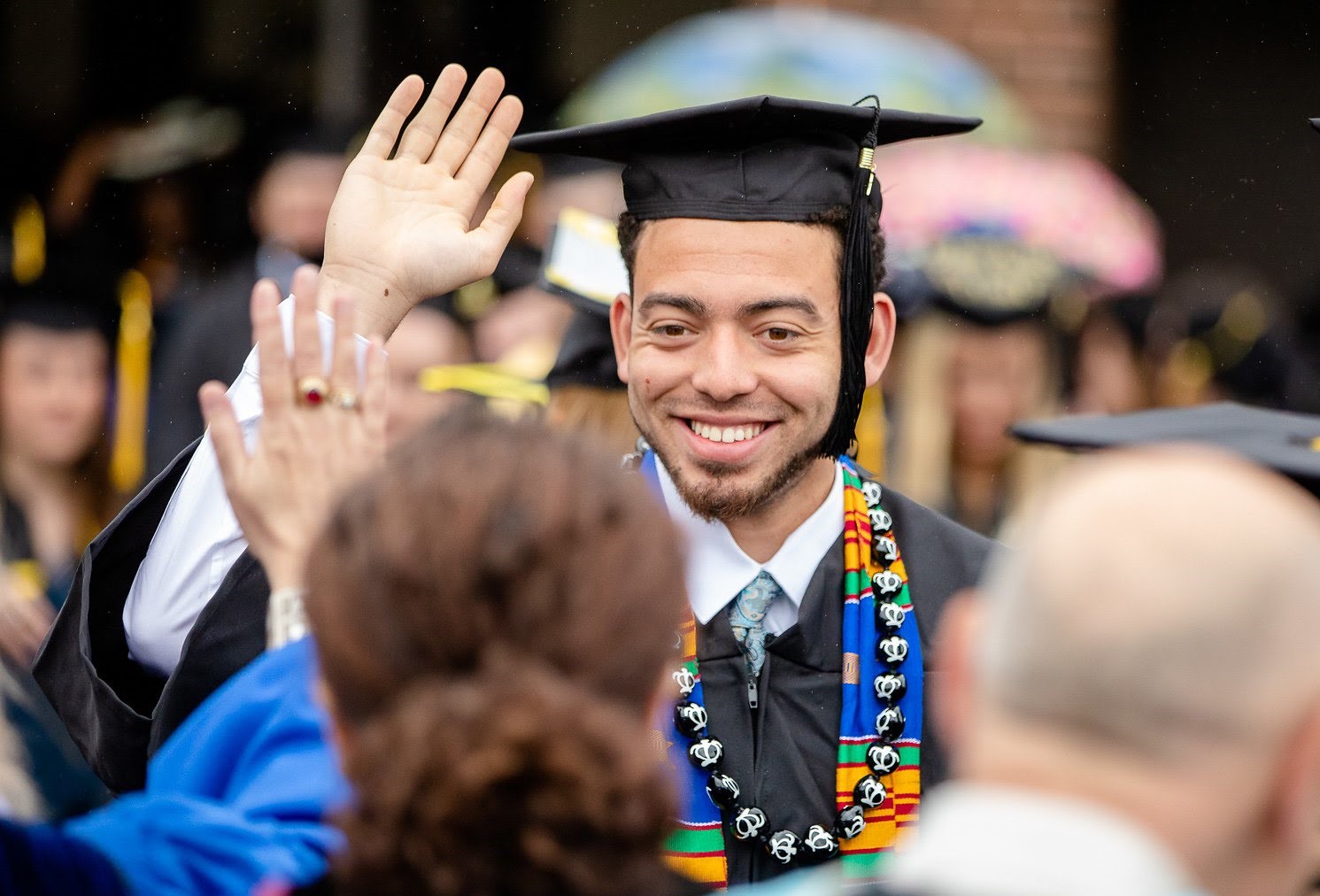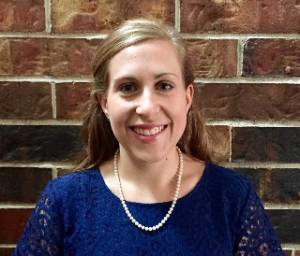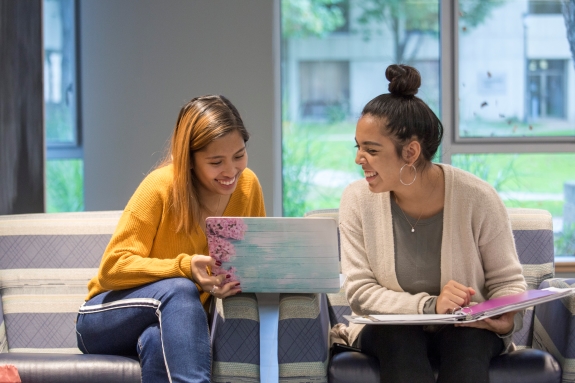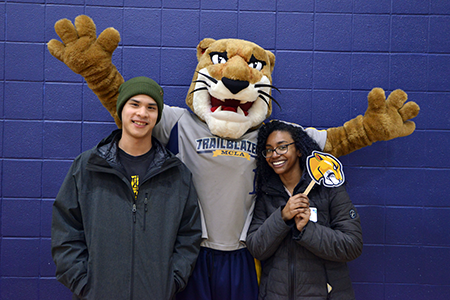Trailblazer Team
Welcome to the Trailblazer family! Everyone can be an MCLA Trailblazer! The Trailblazer Team consists of those who support our students' success; this includes parents, guardians, family members, advocates, or anyone else who helps an MCLA student!
Part of our job at MCLA is to give students and their Trailblazer Team the necessary information and resources to ensure they are safe and successful! We believe a student's Trailblazer Team plays a crucial role in influencing, mentoring, and guiding them through all the transitions that may come their way. At MCLA we want to partner with you through every step of your student's journey!
Your student may require support from their Trailblazer Team to navigate all the important steps during their college career at MCLA. They will continue to rely on that support throughout their college career and beyond.
Welcome to our MCLA family and to your student's Trailblazer Team!

Trailblazer Hub
The Trailblazer Hub is your one stop shop for:
- Access to important news, updates, and deadlines;
- Personalized newsletters specific to you and your student;
- Important announcements via email;
Looking for the perfect weekend to come visit your student and meet the larger MCLA family?
Frequently Asked Questions
- Understand that this can be a stressful time for your student...
- While the stress of applying to college is over, the prospect of heading off to college has now become very real to you and your student. This could be a season of tension and emotions as your student wonders about the unknown, worries about their future path, says "see you later" to close family and friends, and tries out their new independence. Being patient and understanding this transition can be tough for everyone involved. Expect to see higher levels of emotions, testing of limits, tempers, tears, silence, or even anger. These emotions may be taken out on those closest to your student. While difficult this can be part of the transition process for many students and is completely normal. Again, being as patient as possible is key, this includes being patient with yourself as you manage your emotions around transiting your student into the MCLA community.
- Read all of the material we send from MCLA...
- As soon as your student has submitted their enrollment deposit, they will begin receiving
emails with important MCLA information. Much of the correspondence will be directed
to your student, but for many students your help may be important to helping them
stay organized with all the new information they may be receiving. Some tips we recommend are:
- Make a list of all the paperwork they need to submit and when its due
- Make any necessary appointments sooner rather than later (primary care, disability resources, etc.)
- Fill out all required forms completely before they are due
- Starting list of things to pack (if your student will be a residential student)
- As soon as your student has submitted their enrollment deposit, they will begin receiving
emails with important MCLA information. Much of the correspondence will be directed
to your student, but for many students your help may be important to helping them
stay organized with all the new information they may be receiving. Some tips we recommend are:
Of course, your student may and should take the lead with this, but may still need your help to stay on top of all of the details.
- Help your student prepare early...
- Will your student need a health check-up?
- Have they made appointments?
- Do they need to visit the dentist?
- Do they have copies of prescriptions or do they need to transfer them to a pharmacy within walking distance to MCLA?
- Have you set up a bank account?
- Do they know how to create a budget?
- Do they need a credit or debit card?
- Have you discussed the best way to use the card and who will be paying the bill?
- Have important conversations with your student about expectations...
- The transition into MCLA may be easier if you and your student are clear about expectations;
- Are you both clear about who is responsible for expenses?
- Who is paying for textbooks?
- Will you be giving your student spending money?
- Will you student be taking the car to campus?
- Do you have expectations about grades?
- Will you expect to see them?
- What do you want your communication with your student to look like; and how often?
- Texting?
- Calling?
- Emails?
- What are you and their expectations about coming home?
- Have you discussed the tough but important subjects?
- Alcohol
- Drugs
- Sex
- Relationships
- The transition into MCLA may be easier if you and your student are clear about expectations;
The clearer you and your student can be before they head off to MCLA the fewer issues may come up later.
- Be patient with your student and yourself...
- Don't be surprised if your student procrastinates about getting things done prior to leaving for their first semester. Things may be feeling overwhelming for them. The task of physically tackling packing or preparing for their first semester makes things feel very real. Many students wait until the last minute to complete needed tasks, this is normal! Try to be patient and understand but help them make sure they meet all the deadlines. Be patient with your students' emotions and with your own. Remember this is a time of transition for you as well. With a little bit of patience and planning, you and your student can hopefully weather the beginning of this new chapter with less stress and maybe even enjoy the process!
As your student heads off to college, know that there will be challenges ahead; for you both. Challenges may arise for your student in many different areas and as their Trailblazer Team Member you may be unsure how to support your student facing these challenges if you are not there to physically help. You are an important support system for them, but know that MCLA has numerous resources available to help you and your student navigate any challenges they face.
- Academic Challenges
- Many students anticipate that college will be different than any other academic setting they've encountered, but many students underestimate exactly how different things may be. Talking with your student early about their plans for attending class, studying, and how to talk to professors when they need help, can help increase their success academically. If you are unsure how to help your student either prior to their arrival at MCLA or when they reach out with questions, directing them to one of our many campus resources is a great option.
- Time Management Tips for you student
- A major factor in college success is time management. College students spend less time in class than they did in high school and are expected to do more independently directed coursework outside of the classroom. Coursework is often given in larger chunks rather than smaller daily assignments. Students may also spend less time engaging in structured activities than they did in high school. Many students have an on campus or off campus job as well. Helping your student think about how they will keep track of their obligations and assignments, how to break large assignments into meaningful pieces, how to say "no" to activities when they need to study or sleep is an important precollege conversation. Helping your student find a good planner, calendar, or app and learn to use it effectively use it to keep track of assignments, deadlines, and appointments can help set them up for academic success.
- Social Challenges
- Entering college is a new social world for many students, generally students are entering with a clean slate and will get to recreate their social world. Making new friends, possibly negotiating life with a roommate, and once again beginning over at the bottom of the school hierarchy as a first-year student. Your student may likely feel the social pressure of making new friends, joining groups (official or unofficial), and making decisions about alcohol, drugs, and sex. Helping your student anticipate these changes and decisions they will face will help them think carefully about what is important to them.
- Challenges of Responsibility
- Your student will be responsible for their choices and actions here at MCLA. They are responsible for making decisions regarding when and how to study, eating, socializing, finances, and managing their time. It may be a new experience for your student to be held accountable and not being able to turn to someone to get them out of a sticky situation. Allowing your student to turn to you for guidance and support is critical. Helping a student navigate these new situation is how they will learn and grow.
- Challenges of Independence
- As your student heads off to college they are going to be taking big steps in asserting their independence. They could be commuting or living hours away from home. This transition could be difficult with learning how to adjust with this new sense of independence. They may be making decisions that you, as their Trailblazer Team Member, may not know about. This transition to more independence could be an adjustment for both you and your student. The more you can do to help you student adjust to their new independence the sooner the better. Keeping the lines of communication open for questions when it comes to decisions will allow your student to become more comfortable when making decisions.
- Health & Wellness Challenges
- Students must learn to navigate all of life’s challenges, whether that’s eating right
and getting enough exercise, dealing with limited finances, or coping with stress
and anxiety. Wellness looks different for every person, and awareness of your student’s
unique needs is the first step.
- Jokes about “the freshman 15” reflect the reality that students, often on their own for the first time in their lives, don’t always make the best choices when it comes to eating and food.
- College students aren’t exactly known for their “early to bed, early to rise” schedules, but getting sleep is an integral part of staying healthy and being academically and socially successful.
- Fitting exercise into a busy schedule isn’t always the easiest thing, but exercise has many proven health benefits, including making people happier, lowering risk of diseases, and decreasing depression and anxiety. Taking a walk around campus, going to the gym, or participating in an organized fitness class are all things students can do to get a little exercise in.
- Feeling down, anxious, or stressed from time-to-time is a normal part of life for everyone. Many changes experienced by students during their transition to college can be stressful. It’s important to recognize, however, when these emotions begin to interfere with your student’s ability to function in your day-to-day life. Talking to a success coach, professor, or member of Counseling Services can help a student deal with the stressors of college.
- College is often a place where many students choose to explore their sexuality, but sex can often be complicated for students adjusting to life in college. Remind your student that in healthy relationships there is mutual respect. If one person (either one) isn't ready for intimacy, the other should respect that. Your student also has the right to make the decision to remain abstinent and the right to change that decision later. An open and honest discussion about sex, consent, and sexual safety leads to healthier more rewarding college relationships.
- With communal living and lots of students sharing living and classroom spaces, spreading colds and viruses is easy. It is almost inevitable that your student will get sick. One of the experiences that may be new for your student is having to determine just how sick they may be. If they’re not sure, encourage them to call or email Health Services and ask for an appointment. Encourage your student not to wait too long to seek help if they don’t feel well.
- Studies have shown that most students on campus don’t use drugs and either don’t drink or do so in so moderation. Students don’t need to engage in these behaviors to fit in. Drinking excessively can open students up to significant health risks (accidents, fights, date rape/sexual assault). Research shows that having an authentic, personal conversation with your student prior to starting college can have a positive effect on your son or daughter’s attitude towards alcohol.
- Students must learn to navigate all of life’s challenges, whether that’s eating right
and getting enough exercise, dealing with limited finances, or coping with stress
and anxiety. Wellness looks different for every person, and awareness of your student’s
unique needs is the first step.
- Life Skills
- Many students head off to college not having had to cope with general like skills
prior to college. Helping your student understand a few important like skills can
set them up for success.
- How to use a credit card responsibly
- How to do laundry (if they are a residential student)
- How to budget and manage money
- How to manage their time and to wake up for classes or a job
- Many students head off to college not having had to cope with general like skills
prior to college. Helping your student understand a few important like skills can
set them up for success.
Having your student practice these skills prior to leaving home will set them up for success during their time here at MCLA.
- Financial Challenges
- Attending college is an important financial investment. Tuition and Room/Board comprise
the bulk of the cost, but there are other costs associated with daily college life.
In addition to the cost of each semester for textbooks, many residential students
which to furnish their rooms, eat out, and have spending money. One of the best things
that you can do is help your student, and you think about how money will be handled.
- Are you financially in a place to help support your student? Will you student be responsible for their own expenses?
- Will they need to get a job on or off campus?
- Attending college is an important financial investment. Tuition and Room/Board comprise
the bulk of the cost, but there are other costs associated with daily college life.
In addition to the cost of each semester for textbooks, many residential students
which to furnish their rooms, eat out, and have spending money. One of the best things
that you can do is help your student, and you think about how money will be handled.
Talking with your student and making a plan on how expenses will be handed will help them understand the important of their financial future.
- The Challenge of Balance
- By adding up all of the challenges a student faces during their college career, we realize that achieving a sense of balance may be the most important. Help your student realize that they may be constantly juggling prioritizes. Being flexible and aware that academics must be balanced with their social life, sleeping, studying and event fun are all part of the balancing equation.
MCLA is committed to your student’s educational success. Our commitment also extends to you, as part of your students' trailblazer team.
Your awareness about our academic and co-curricular programs will help you help your
student find the challenge and support that can enable and enhance their successful
college experience. You are encouraged to speak with your student about taking advantage
of all the academic resources available on campus. Talking with a professor or advisor,
using Freel Library, or trying some of MCLA's support areas like Academic Advising
and Support are all good ways for your student to find the right guidance and assistance.
Learning more about internships and study abroad opportunities are good ways for your
student to consider enhancing the learning experience.
- Academic Resources
- Academic Learning Experiences
- Internships
- Study Abroad
- Career Services
-
Can I have access to my students’ Academic Record?
The Family Education Rights and Privacy Act (FERPA) is a federal law that protects the privacy of a student education, financial, and academic records. For the student’s protection, FERPA limits release of student record information without the student’s explicit written consent.
- Please visit the MCLA FERPA Page for more information.
- FERPA Release Form can be found here.
While every student goes to college to learn and grow. They often discover, that academic work at college is different than the work that they did in high school. Students are expected to spend more time studying and colleges expect a higher level of critical thinking. College also brings with it other types of learning. Much of this other learning happens outside the classroom. Students have opportunities to pursue old interests and to discover new interests. At times students may choose not to fully engage in all the learning opportunities that college offers because they may be too focused on academics or socializing. Many worry that getting involved in activities or organizations on campus will distract them from their academic pursuits rather than enhance their academics. Research shows the opposite to be true. Engaging in all the opportunities college offers contributes to academic success.
Your college student is learning to find their own path during their college experience. Part of this learning is understanding the importance of their own choices. As a Trailblazer Team Member, you can encourage your student to take advantage of the many opportunities available on campus. Help them think about the benefits of getting involved in organizations and activities the college offers. Here are a few things that they may consider.
- Getting involved in groups that share common interests, or attending activities offered by the college is fun. It's that simple. They will have a good time and enjoy themself. Its healthy to take a break and have some fun.
- Getting involved gives your student the opportunity to meet new people. An important par of college is about making new friends, understanding different perspectives, and meeting different kinds of people. Getting involved in campus activities allows your student the opportunity to meet people and diversify their contacts beyond the circle of people they will meet in their residence hall or classes.
- MCLA offers opportunities and experiences, often at little or no cost, that they may not ever have again from musicians to plays- there is always something happening throughout the Berkshires. Discount tickets to performances and athletic events are often available. World renowned speakers regularly visit campus to give addresses or host workshops.
- Your student find a new interest. They'll have opportunities to explore opportunities they've thought about but not been involved in before. Who knows, they may discover a hidden talent or new passion.
- Student have the opportunity to connect with MCLA in new and different ways, and feel a sense of connection to the college community and North Adams community.
- Your student may discover a new career path by participating in clubs or organizations that lead them in a new direction.
- Being involved clubs and organizations is a resume builder.
- Your student will not only meet and spend time with other students, getting involved will connect them with faculty, administrators, or members of the outside community.
- Getting involved can help increase self-esteem and develop leadership skills. They may be surprised to discover new things about themself as they become involved in.
- Several studies have shown that students who are active in campus life, who do more than focus solely on their studies, are more engaged in the campus community and more successful academically. Other studies suggest that students who are more engaged are more satisfied with their college experience. Although some students fear that being involved will hurt their academics, it often helps with their studies.
Being involved in the MCLA community can bring tremendous benefits to your student. However, as with so many things during these college years, it is important that your student finds their sense of balance. Participating in organizations and attending activities on campus are important for your student's well-being. Being involved in everything or allowing activities to distract from studies or interfere with a focus on what they want from life, can be harmful. Your student will need to ask - "How much is enough?" and "How much is too much?" Your student will need to find the appropriate and comfortable level of involvement.
Campus Resources
Additional Resources
- College Ready 2023: Expert Advice for Parents to Simplify the College Transition by Chelsea Petree Ph.D. (2023)
- You're On Your Own (But I'm Here If You Need Me): Mentoring Your Child During the College Years by Marjorie Savage (2020)
- You're On Your Own: But I'm Here if you Need Me by Marjorie Savage (2003)
- Out to Sea: A Parents' Survival Guide to the Freshman Voyage by Kelly Radi and Angela Wiechmann (2016)
- I'll Miss You Too: The Off-to-College Guide for Parents and Students by Margo E. Woodacre and Steffany Bane (2015)
- The iConnected Parent: Staying Close to Your Kids in College (and Beyond) While Letting Them Grow Up by Barbara Hofer (2011)
- Don't Tell Me What to do, Just Send Money: The Essential Parenting Guide to the College Years by Helen Johnson and Christine Schelhas-Miller (2011)
- Emptying the Nest: Launching Your Young Adult toward Success and Self-Reliance by Brad Sachs (2010)
- Letting Go (Fifth Edition): A Parent's Guide to Understanding the College Years by Karen Levin Coburn and Madge Lawrence Treeger (2009)
- A Parent's Guide to Sex, Drugs, and Flunking Out: Answers to the Questions Your College Student Doesn't Want you To Ask by Joel Epstein (2001)
- College Parent Central with Vicki Nelson and Lynn Abrahams
- You don’t stop parenting the day you drop your student off to college on Move-in Day. Your role simply changes. (Actually, it’s not simple at all, but it changes.)
- NY College Chat by Policy Students in Education
- This weekly podcast is for parents and high school students who are preparing for college. It was created by the non-profit Policy Studies in Education (PSE).
Questions? Just Ask!
 Email us at TrailblazerTeam@mcla.edu
Email us at TrailblazerTeam@mcla.edu
Jenn Labbance
Director of New Student Programs and Family Engagement



